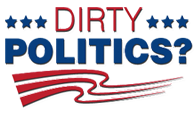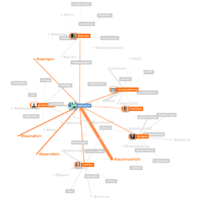Crowdsourcing Best Practices
A new ethical framework for political coverage
What happens when social media and political coverage collide? How do you handle the challenges of “access journalism” like requests for quote approval? How can journalists keep politicians honest? Could a different approach to reporting improve the flow of information to voters?
Join these ongoing online conversations about ethics in political coverage and help contribute to a new best practices guide!
Partners
![]()
The Poynter Kent State Media Ethics Workshop 2012
Blistering sound bites, attack ads and pack journalism are all parts of “dirty politics,” which was the focus of the 2012 Poynter Kent State Media Ethics Workshop. Watch speeches and stories of very real ethical issues challenging political journalism today, including quote approval, transparency, and responding to campaign lies.
Ethics in political coverage
Hot 2012 topics
The four ongoing conversations on ethics in political coverage happening here came out of major themes that emerged from the 2012 Poynter / Kent State workshop on media ethics. There were many more!
Check out this list of ten hot ethics issues in election 2012.
What other ethical challenges have you experience or observed? Don’t struggle with them alone!
Join any conversation. Your thoughts here will help inform a new best practices guide.
Conversations for impact
Getting somewhere new
How might political reporting better serve citizens, build civic connections, clarify context and deepen engagement between journalists, the audience and our nation’s leadership?
Join these ongoing conversations on ethics in political coverage! Add your experience to inform a new best practices guide!
What ethical challenges arise when social media and political reporting collide?
How do you manage the ethical minefields of “access journalism”?
What are the best ways to call out misconstrued facts in politics?
How can the media consistently deliver the political coverage citizens deserve?
Key Comments: Ethics in political coverage
Political Ethics Resources
- Campaign Ethics
- Politics, Ethics and the Role of Media
- What Do We Want? Respectful Discourse. When Do We Want It? Now… But I’m Interested in Your Opinion
- Avoiding Media Bias When Covering Political News Stories
- In Politics, Ethics Matter More Than Issues
- Political Ethics
- Center for Ethics and Policy
New Media Ethics Resources
Join Us: Conversation Channels




 Click image for enlargement.
Click image for enlargement.








Answers: Remember to refresh often to see latest comments!
0 answers so far.